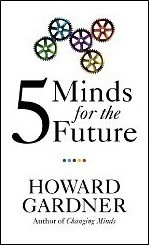This is a re-post of the second part of 9 Minds for the Future, …positing “synthesizing horizon-mindedness” as the locus driving the expansion and success of our species.
Recently, John Battelle posted an essay asking: Is AI The Worst Mistake In Human History?
“One of the most intriguing public discussions to emerge over the past year is humanity’s wrestling match with the threat and promise of artificial intelligence. AI has long lurked in our collective consciousness — negatively so, if we’re to take Hollywood movie plots as our guide — but its recent and very real advances are driving critical conversations about the future not only of our economy, but of humanity’s very existence.
In May 2014, the world received a wakeup call from famed physicist Stephen Hawking. Together with three respected AI researchers, the world’s most renowned scientist warned that the commercially-driven creation of intelligent machines could be “potentially our worst mistake in history.” Comparing the impact of AI on humanity to the arrival of “a superior alien species,” Hawking and his co-authors found humanity’s current state of preparedness deeply wanting. “Although we are facing potentially the best or worst thing ever to happen to humanity,” they wrote, “little serious research is devoted to these issues outside small nonprofit institutes.” ”
The fundamental question is asked by Max Tegmark, a founder of the Future of Life Institute:
“It’s a race between the growing power of the technology, and the growing wisdom we need to manage it…Right now, almost all the resources tend to go into growing the power of the tech.” Who determines what is “good”? We are just now grappling with the very real possibility that we might create a force more powerful than ourselves. Now is the time to ask ourselves — how do we get ready?
I read this shortly reading about the Brexit Leave campaign; post-referendum. The “leaders” are backpedaling. They opened Pandora’s box. They’ve unleashed the dragon. But had NO plan. As a species we do this regularly. We avoid loss by avoiding thinking about it until the threat is upon us. We prevaricate. We fiddle, as Rome burns.
What is our plan?
And for me:
> Are we becoming the AI we should be afraid of?
> Is Horizon Mind and Horizon Intelligence …both singularly personal and the collective intelligence of our species?
– David Huer
This is a concept for how Horizon Intelligence develops . . .
When our children are born, they look out upon a strange and scary place.
All thinking is internal . . .
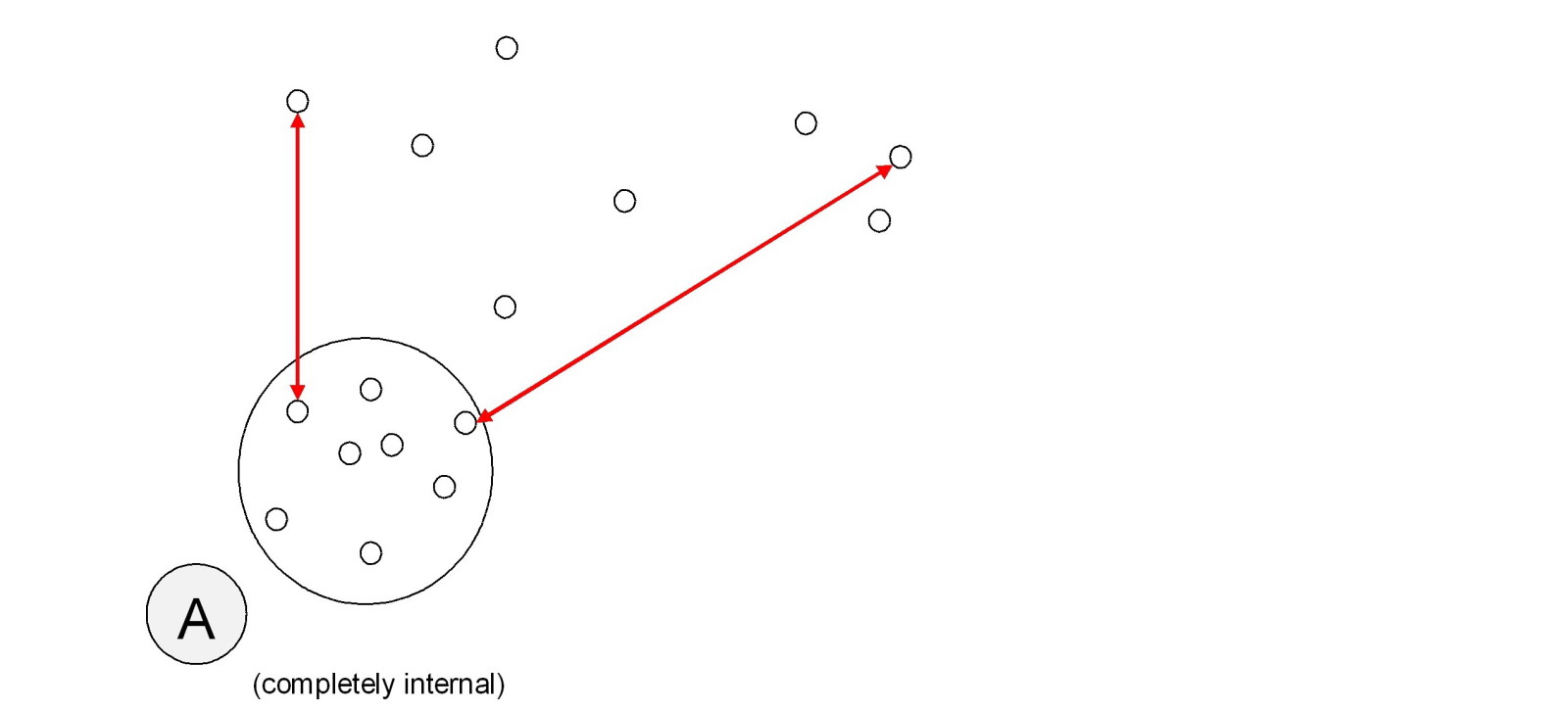
The questing mind moves out from that internal space
Learning to involve sensory feedback: a mother’s breast milk, being singed, standing and falling, toy-making and using and breaking. Shitting and stinking, and eating boogers, and saying “No!”.
A sensory (feeling-seeing-scenting-tasting-thinking) feedback loop . . .
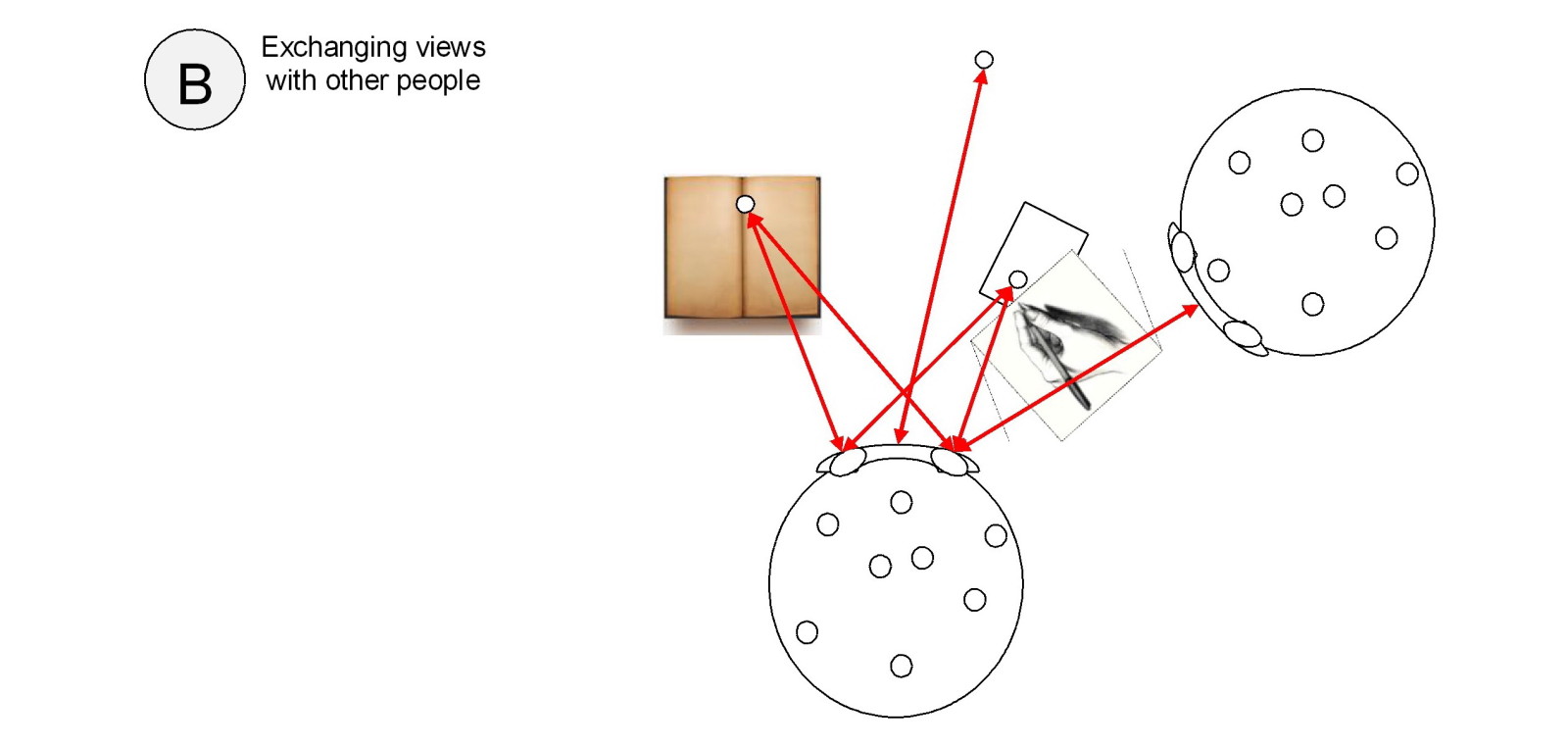
But then, the questing human mind extends that feedback loop.
And here are the interesting questions . . .
Does the questing mind extend that feedback beyond others (mum, dad, sibling, grandma, the family dog) to wider horizons? Seeking to frame the horizon as a future that can be re-framed, changed, to whatever we want it to be;
This “horizon re-framing mind” — this Horizon Intelligence–perhaps it is the vista-seeking mind that makes our species gain the bigger perspective?
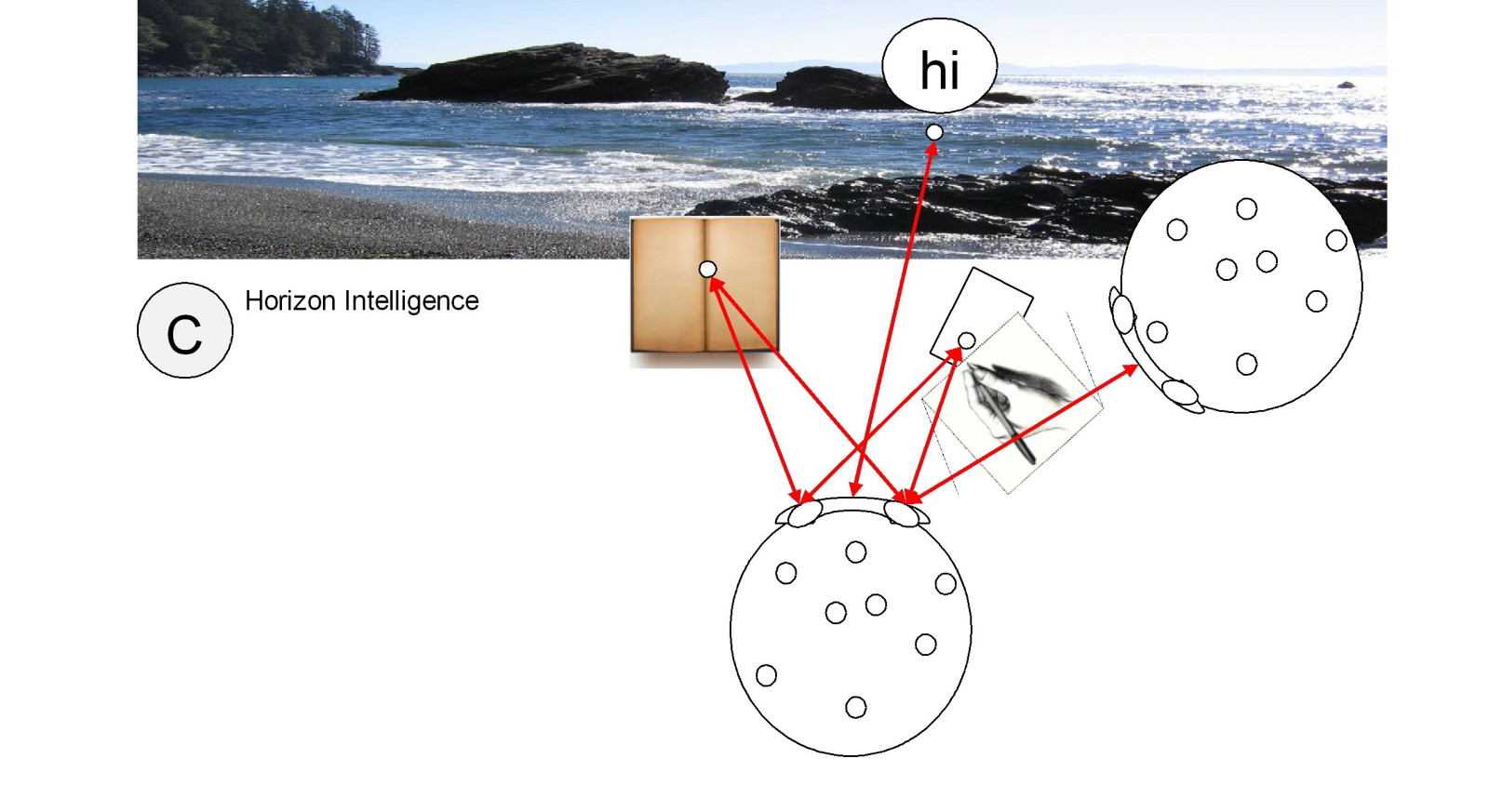
And perhaps, it is Horizon Intelligence that synthesizes all of the other intelligences into one? Making the sum of the parts that which makes us aware? That makes us planners and doers of our own destiny? [see: 9 Minds… for the proposed list]
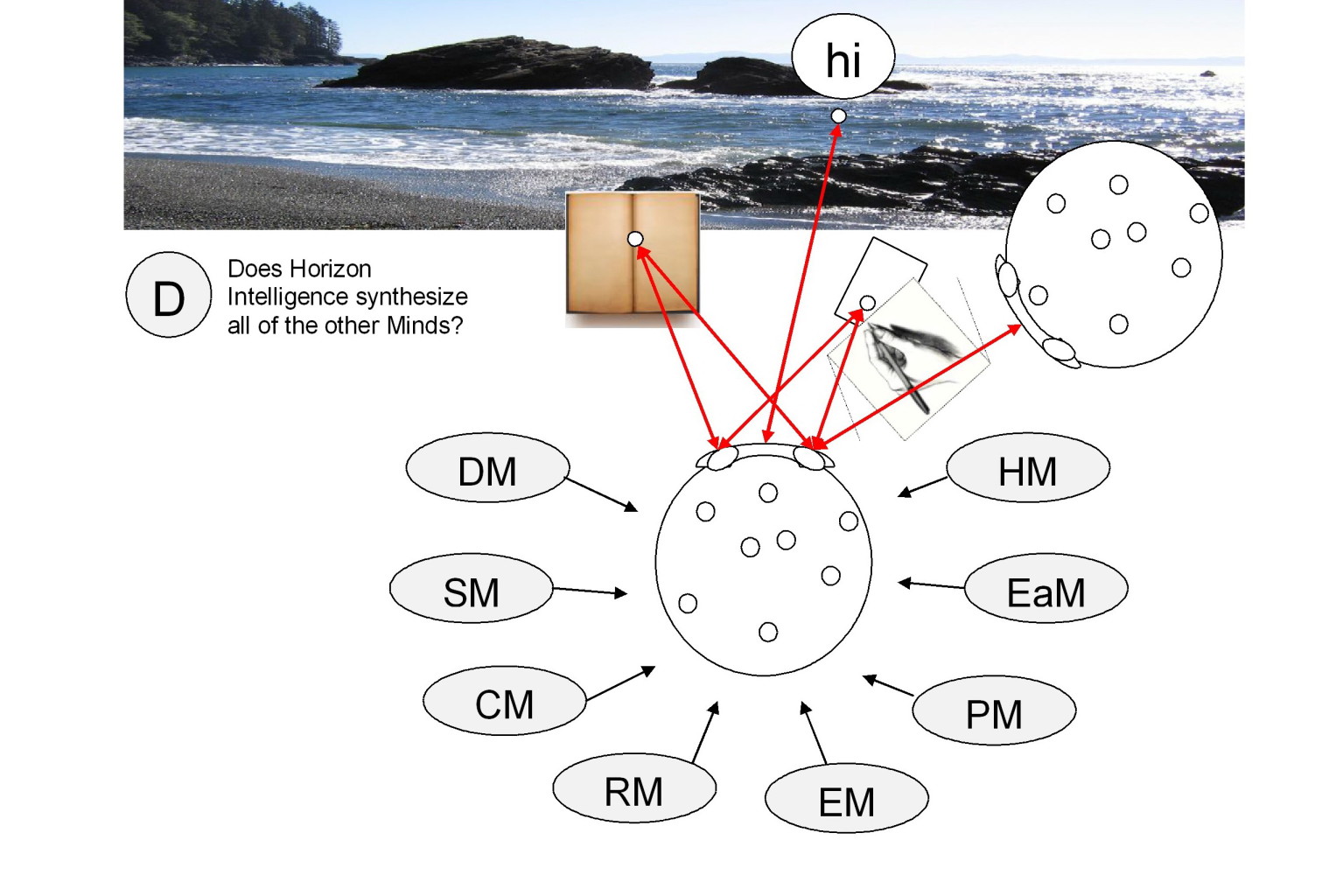
And if so, is it this intrinsic quality of thinking-being-contemplating-doingness that Information Technology kills? The “thrumming guitar pluck”, the quiet humming golden thread–that IT muffles and snuffs out? The missing quality that we cannot replicate?
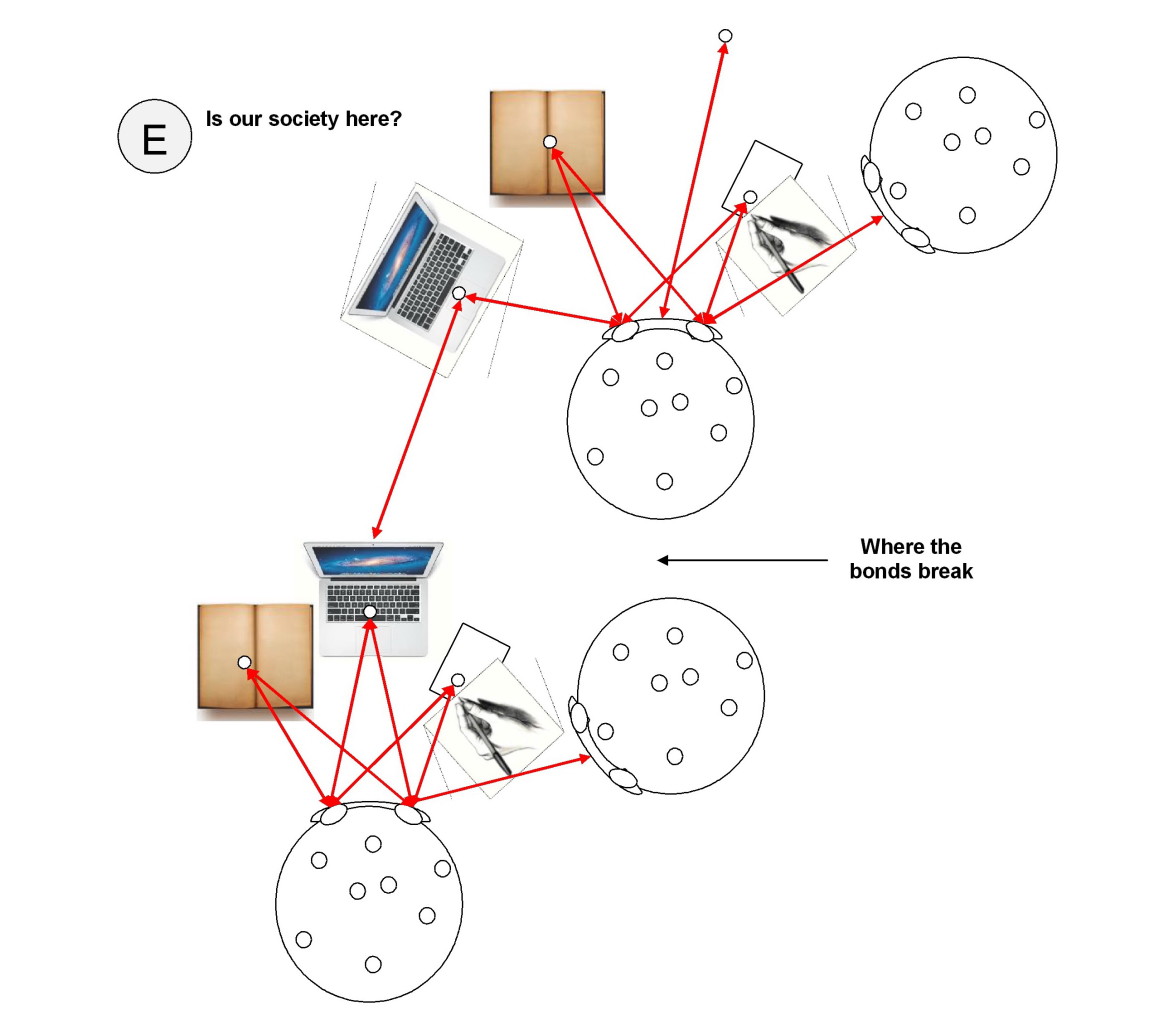
Are we losing our Horizon Intelligence?
And if we are, are we becoming the Artificial Intelligence we should be afraid of?
— David Huer
Images:
All other images and artwork: © 2015 David Huer. Photo is of Sombrio Beach on the west coast of Vancouver Island.

